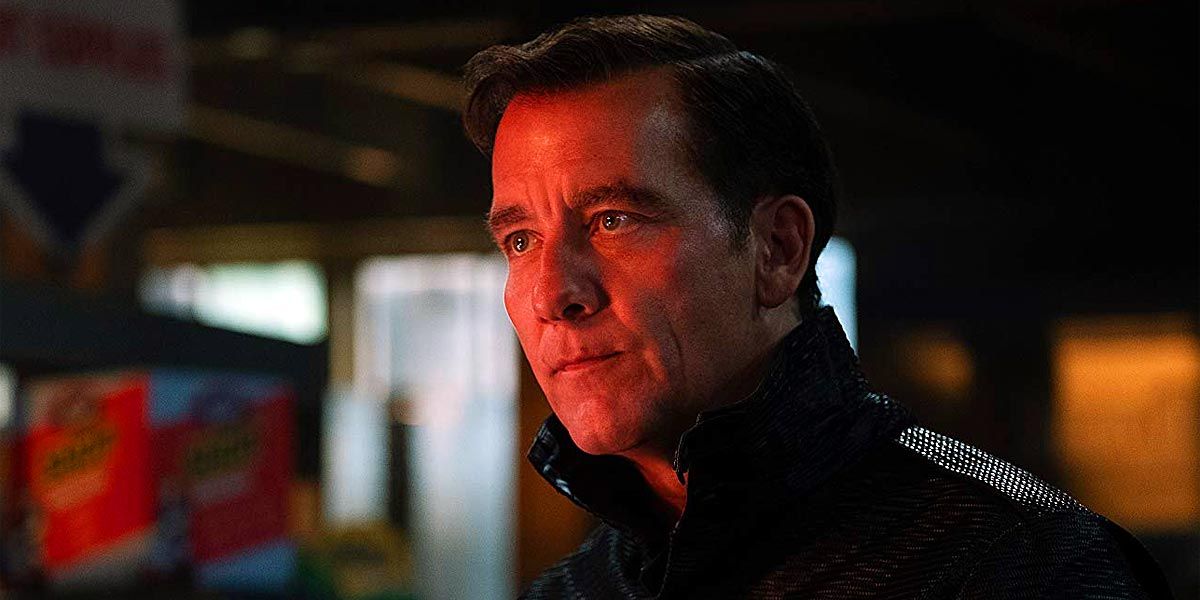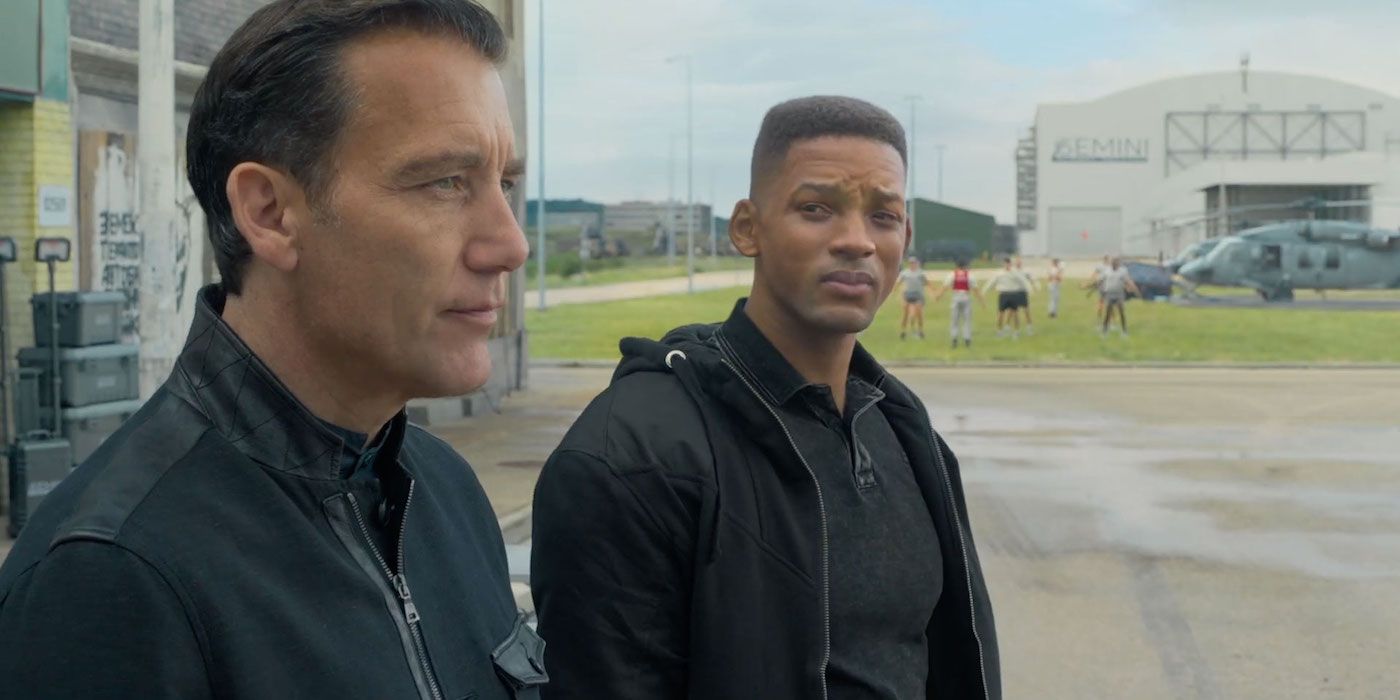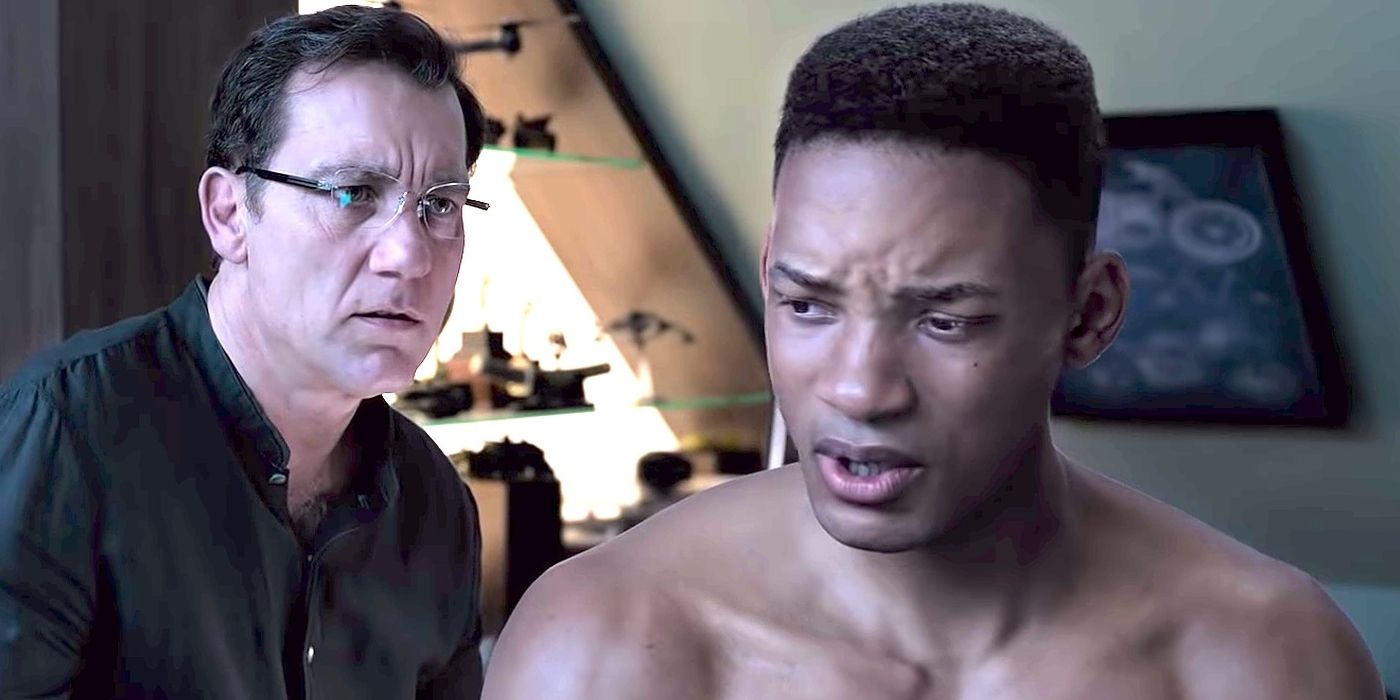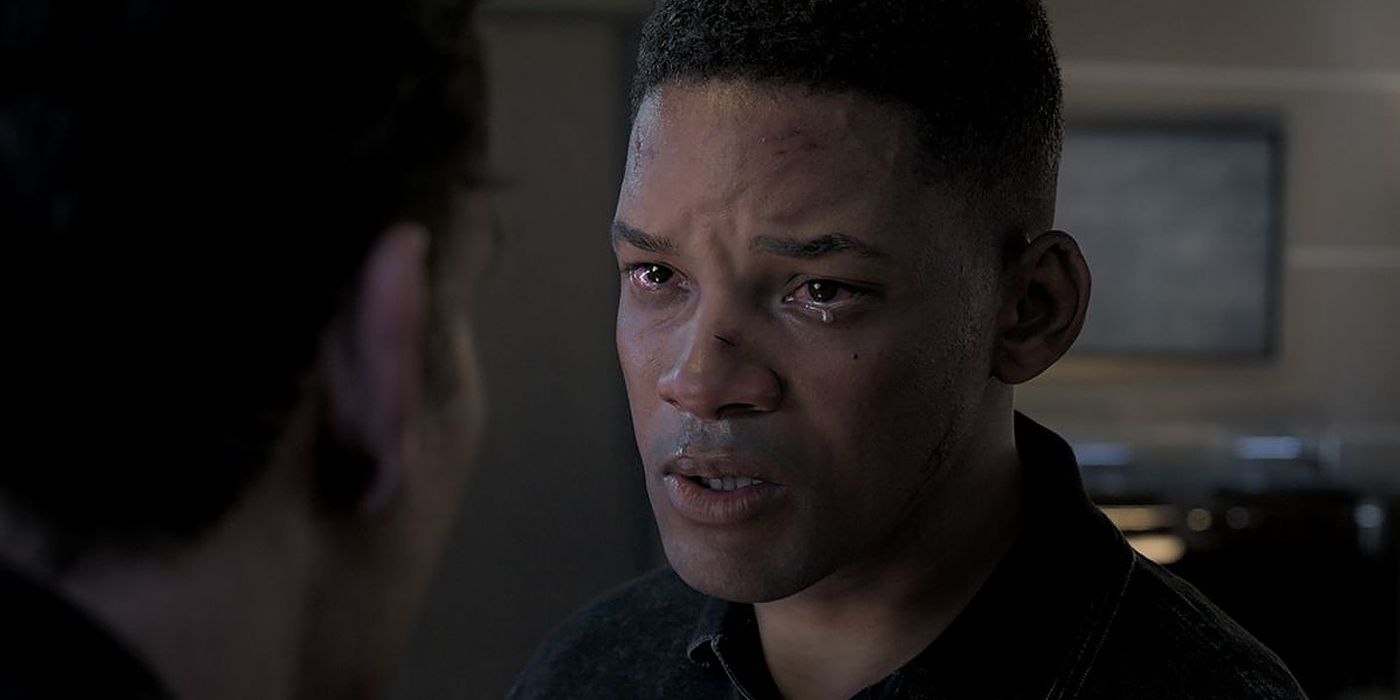WARNING: The following article contains spoilers for Gemini Man, in theaters now.
Gemini Man has a handful of problems with its overall narrative, often alternating from serious to almost comical at points. This makes it a very mixed film, with some strong sequences punctuated by bizarre story beats. Nowhere is this more evident with the film's chief antagonist, Clay Varis (Clive Owen), a former mentor to Henry Brogan (Will Smith) and a surrogate father to his clone. Naming him Clay Varis Jr. or Junior for short, Clay is actually given a very compelling relationship with his adopted son.
The problem is that the rest of the film portrays Clay without any of the nuances he gets in the handful of scenes he shares with Junior. It makes for a tonally confusing character, and a waste of a potentially complex villain.
THE GEMINI PROJECT
Clay is introduced as the head of Gemini, a black-ops unit working with the United States government. He's been in the military a long time, training a number of top soldiers. His best was Henry Brogan, an efficient and skilled killer. But as Brogan grew older, Clay realized a day would come where Brogan would retire or even die. Deciding his skills were necessary to the future survival of peace, Clay clones Brogan in secret. The first attempt produced Junior, who Clay raised as his own son.
When Brogan is used to assassinate a scientist who worked on the project, he begins digging into the organization. Clay attempts to have him killed to prevent him from learning the full truth. He eventually uses "Gemini" himself (Junior) to target the man he's cloned from. Junior almost kills Brogan, but he is able to survive and even reach out to the younger version of himself. Clay eventually reveals that he's been trying to build an army of Brogan clones, who could become the perfect soldiers for future conflicts. This way, he can save lives by never making anyone have to join the military. Instead, it'll be more clones, modified to lack personality, fears or even pain, who are sent into future conflicts unquestioningly.
RELATED: What Drew Gemini Man’s Filmmakers to the Action Thriller
DADDY ISSUES
Two scenes elevate Clay as a character, however, giving his absurd plan a touch of humanity that makes it more engaging. In the first, an injured Junior returns home after failing to kill Brogan in Colombia. Clay helps patch him up, and actually shows a bit of a tender side. Although his son is still very respectful and dutiful, there's a touch of emotion in Clay here. He even offers to make him a big bowl of cereal, almost as if he was just seeing his son after coming home from college for the holiday.
Their next sequence is more intense, with Junior confronting Clay about being a clone. Clay defends himself and the practice, arguing that the Gemini soldiers can protect families from losing their loved ones to war. But when Junior asks if that's all he is, Clay becomes strangely comforting, almost hurt by the accusation. He genuinely sees Junior as his son, not a weapon, and he wants him to see how the other clone army is all to protect people like Junior.
It adds a layer of complexity to both characters, and it's probably the single strongest moment in the film (largely thanks to Clive Owen and Will Smith's acting). It gives Clay a human connection to his argument that cloning an army of soldiers to fight wars saves parents from losing their children, a fear he suddenly is shown to be very aware of.
He argues that the unfeeling clones can be the necessary casualties of war, having no families to lose or emotion to distract them. If he has the ability to make that a reality, then why wouldn't he? In his mind, this will save an entire generation of young people, just like Junior. It all makes for a surprisingly complicated set of emotions and motives.
RELATED: Should You Watch Gemini Man In 3D & High Frame Rate?
PLAYING THE BAD GUY
The problem is that Clay doesn't remain that interesting throughout the film. Instead, he spends every scene away from Junior acting like a low-grade James Bond villain. He barks orders at other agents and has soldiers running drills constantly, who end up being nothing more than cannon-fodder in the third act. He casually orders the assassination of Brogan, and then plainly plans how he'll fake a Russian attack and a military funeral. He's a base-line bad guy the rest of the film, with no hint of the emotional core of the character.
For a career military man set on a mission, it makes sense for him to try and push those feelings aside somewhat. But the final sequence doesn't reflect the potential of a father trying to explain why he did what he did to protect his son.
Rather, he speaks to Brogan, making the point that he should be stressing to his son. It's an unsatisfying moment, as is the casual way Brogan shoots Clay so that Junior doesn't have to. It's a lackluster conclusion to a character who showed real potential to be an interesting villain. His argument has a core of a good idea in it, keeping families from losing their sons and daughters to war.
Something like a clone army is a morally questionable tactic, but framing it through his love for his son makes it at least understandable, if not acceptable. But the film doesn't pick up on that element as it could have, and we're left with a bad guy who feels like any other one-dimensional "playing god to take over" villain from action movies past.
In theaters now, Gemini Man is directed by Ang Lee from a script written by David Benioff, Billy Ray and Darren Lemke. The film stars Will Smith, Mary Elizabeth Winstead, Clive Owen, and Benedict Wong.




